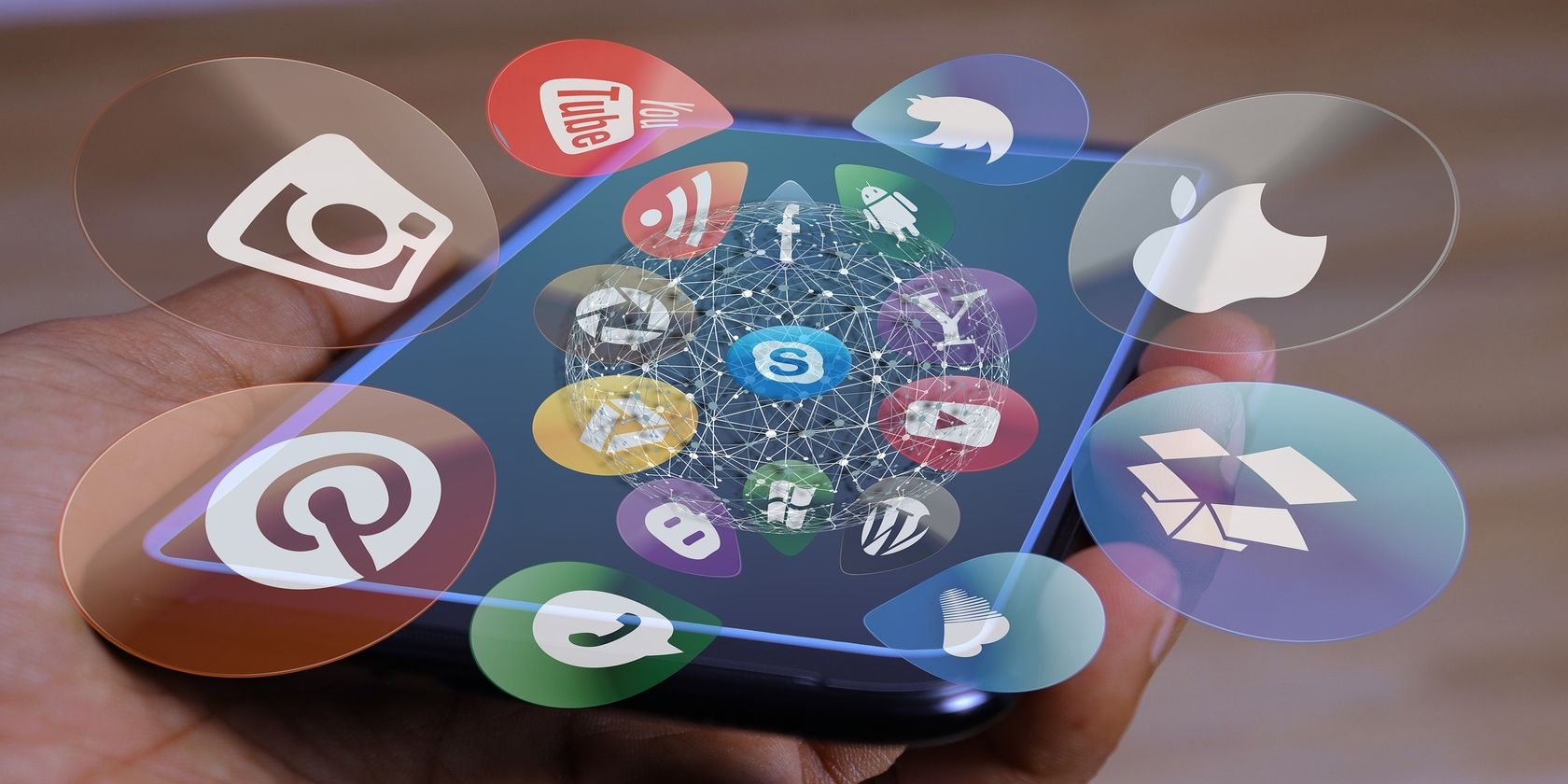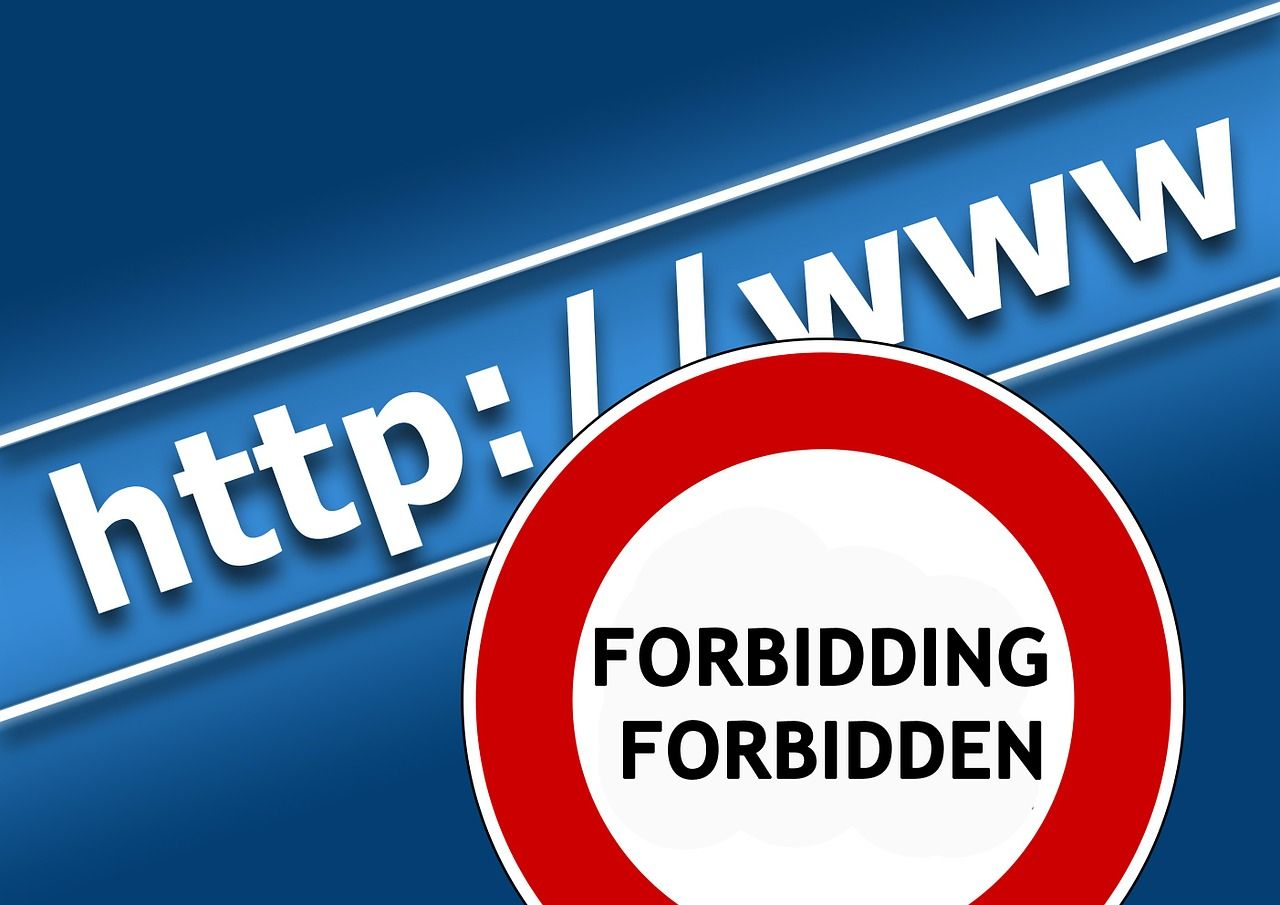Two decades ago, Google was just a search engine, Amazon was mostly a book vendor, and Facebook did not exist.
Today, all three companies have grown so massively that they have a presence in almost every facet of our digital life. From text to video-based communication channels, there is no escaping Big Tech.
With such a massive reach, there are fears that these tech giants wield a bit too much power over what we are allowed to see or share online. As the list of what is being censored grows, here's why you should be concerned.
What Is Big Tech Censorship?
At first, the reach of Big Tech looks quite normal—a bunch of tech companies making enormous progress. However, the concerning issue is their monopoly over public conversation channels and how they exercise the power that comes with it.
Big Tech censorship is when companies like Apple, Amazon, Google, Microsoft, or Twitter get to decide what piece of media you can see or interact with on the internet. It's when they get to act as gatekeepers of the web, deciding which opinions you are allowed to share on burning issues and what contents are "safe enough" for you to consume.
At first glance, censorship makes a lot of sense. Many extremist ideas and incitement towards violence spread using internet platforms. It's a no-brainer to keep them in check.
Conversations on platforms like Facebook and Twitter sometimes degenerate into personal insults, threats, and racist attacks. It's important to keep a check on this as well.
Political entities sometimes share views and contents that are "inconsistent with the truth". This is considered disinformation and should rightly be "closely monitored".
In all three instances, censorship seems to make sense. Ironically, that's exactly the problem. When censorship seems normal. When Big Tech has the power to single-handedly label a narrative as either consistent or inconsistent with the truth, things have gone too far. Who decides what the truth is? Big Tech?
According to an NPR report, during the run-up to the 2020 US Presidential election, the New York Post suffered a series of coordinated censorship from Facebook and Twitter.
After publishing an investigative report about a family member of one of the candidates, both platforms deemed the report to be incompatible with the truth and immediately suppressed it. Twitter even banned all news stories from the New York Times Twitter account for a while.
In April 2022, one of India's largest news platforms, Wion, was banned from YouTube for airing a European leader's statement. According to Wion, the aired statement was deemed inconsistent with reality and Wion was punished for it.
In both instances, Big Tech decided what was real and what wasn't. Is it okay for big tech to play Judge, Jury, and Executioner? Surely, many will object.
Why Should You Be Concerned?
The New York Times is one of the largest news platforms in the US and Wion in India. If Big Tech could effectively deplatform these heavyweights for having incompatible opinions, what about an ordinary user?
What happens when your fact-based—political, religious, or scientific—opinion is incompatible with Big Tech's interpretation of the truth? Could we reach a time when we could get booted for, say, holding contrasting political opinion to companies?
Could we eventually be faced with the choice of conforming or being censored? Of refraining from incompatible views as the price of having access to Big Tech's platforms? It hasn't yet reached that stage; we hope it doesn't, but it certainly could. And that's troubling.
However, that's not the only problem. Perhaps more troubling is the danger of a single narrative. If one side of a public conversation is suppressed, it's no more a conversation. Instead, people are seemingly being force-fed a narrative and "policed" to accept it.
By operating almost everywhere in the world, Big Tech could become dictators without borders. By suppressing even the most seemingly insignificant narrative, they can almost single-handedly influence global outcomes.
It's easy to argue that their censorship powers are restricted to their platforms, and you can share your opinions anywhere else. However, the reality is less straightforward.
Big Tech is well, Big Tech. They control a majority of the public conversation channels where you can get a worthwhile audience. If you have any doubt about Big Tech's monopoly, think about the last time Facebook and its affiliate apps went down for several hours in 2021.
But that's not all, Big Tech also controls the majority of infrastructure that keeps the internet running. This means, that even when you're running your own space, Big Tech can stop it if it's in any way tied to any of their infrastructures.
In January 2021, Apple and Google kicked out Parler from the App Store and the Play Store respectively, after the platform was accused of not moderating its users' content. Barely 24 hours later, Amazon Web Services (AWS) kicked out Parler from its hosting, effectively killing the social media platform’s connection to the internet.
While this was probably for a good cause, could the same machinery be deployed to vanquish competing narratives? This demonstrates Big Tech's enormous powers.
How About the Good Sides of Censorship?
They seem to be more harm in censorship than there are benefits. So, how then can Big Tech keep public discourse clean? By leaning more towards moderation rather than outright censorship.
In case you're wondering, there's a difference between the two. Moderation is when these platforms ensure civil discourse is free from racial attacks, insults, incitement, and threats of violence. Censorship is when contradictory viewpoints are suppressed.
If tomatoes and cucumbers grow in a garden and compete for dominance, sometimes weeds come along. Moderation is taking out the weeds to foster healthy competition. Censorship is more like suppressing the cucumbers to let tomatoes fill up more of the garden space. This shouldn't be so.
But can internet users be trusted to judge opinions based on merit? Big Tech says "No", and continues to decide for us what opinions we should, or should not, be exposed to. They are suppressing the cucumbers.
What Can You Do to Mitigate the Trend?
Realistically, most of what can be done are in the hands of governments all around the world. However, there are some things you can do to shield yourself from it.
1. Actively Seek out an Alternative Narrative
It's commonplace to see the majority view on one platform different from the majority view on another. Sampling diverging opinions on different platforms gives you enough information to make an informed position free from censorship-imposed bias.
Internet forums like Reddit, although with their share of controversy, typically showcase multiple narratives. Quora is another great place to weigh diverging opinions away from the censorship constraints of Big Tech. Medium also features ideas across the political, religious, and scientific spectrum.
2. Visit Media Sources Directly whenever Possible
Make it a habit to visit sites you're interested in, rather than wait to be recommended content from them on social media. If it's censored, that important recommendation might never come up on your feed. Type in Quora, NY Times, MakeUseOf, or your preferred websites and visit directly more often.
3. Embrace Smaller Platforms
Unlike most of the dominant social media and video-sharing platforms, smaller platforms are both less inclined and under less external pressure to censor opinions. You're more likely to see the two sides of a story, or at least the other side.
As an alternative to YouTube, you can try smaller platforms like Utreon, Dailymotion, Vimeo, D.tube, and 9gag. For Twitter, you can try Tumblr, Hero True Social , Yubo, and VK.com among some great alternatives to Facebook.
Practically speaking, migrating to these platforms isn't going to take away the problem. Also, you may not find a lot of your high school friends as you'd do on Facebook, nor get access to all the global news sources you'd get on Twitter.
However, the fact that you have an option or an alternative is very important. The more people migrate to or at least use these alternative platforms, the more power is decentralized from big tech.
Take Responsibility as Well
While healthy but contradictory opinions should not be censored, as internet users, we must learn to self-moderate. Before you post that Instagram, Facebook, or Twitter post, ask yourself, would this be okay if it was directed at me?



.jpg)
